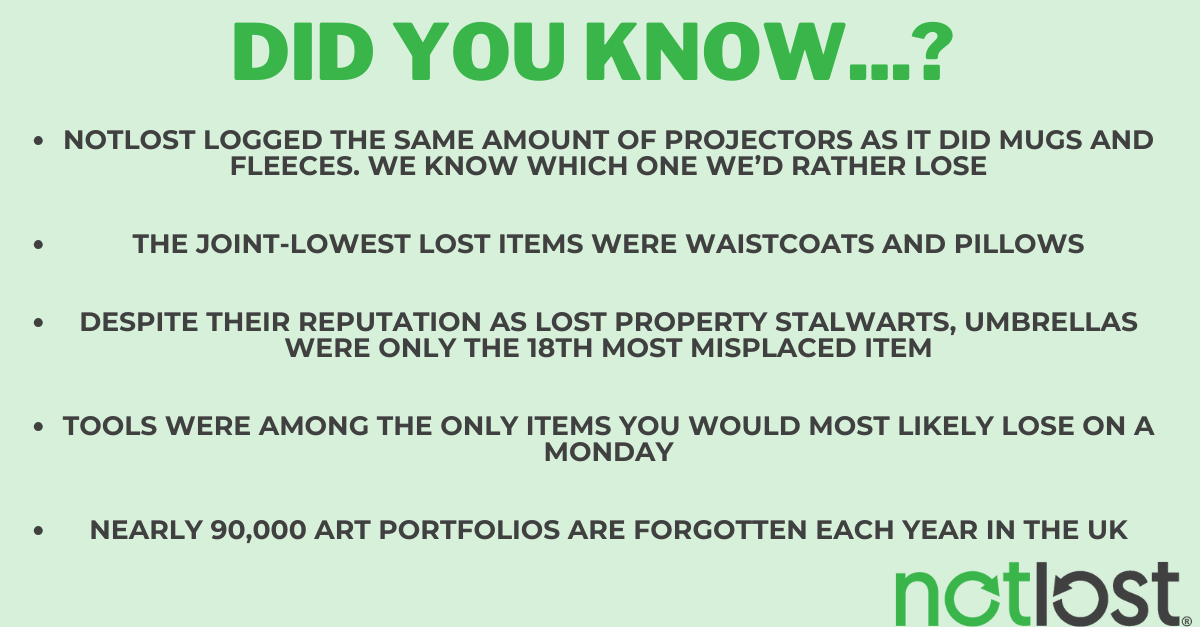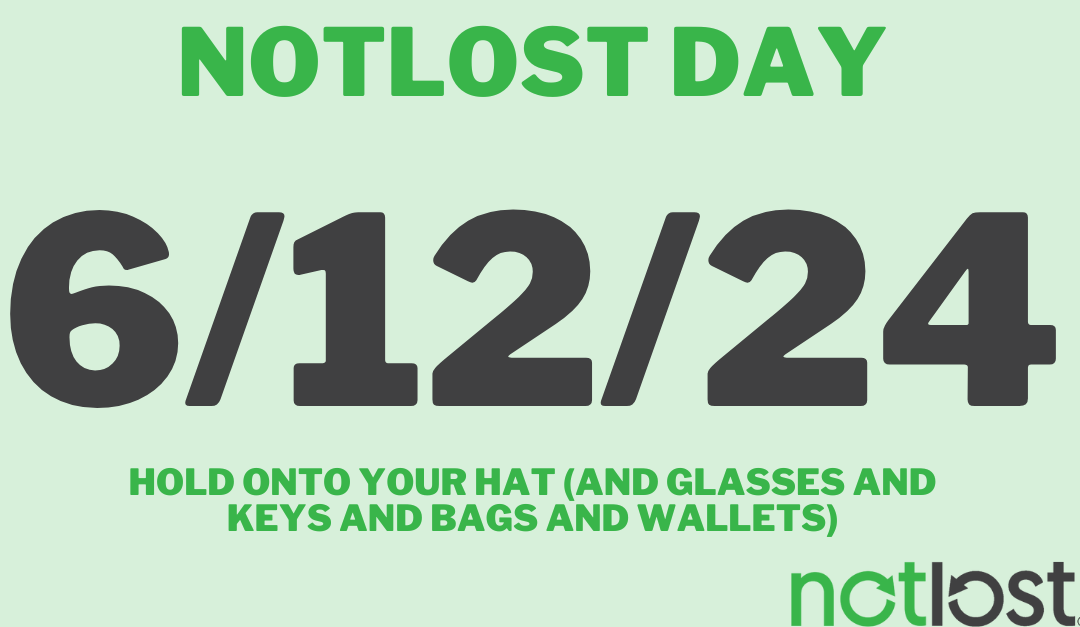Each year has special days. Christmas evokes sentiments of kinship and frivolous spending, Halloween offers a glimpse into the macabre and Easter facilitates gorging on chocolate for no discernable reason.
One date, however, has been flying under the radar. The first Friday of December, Aka NotLost Day, is the 24-hour period during which most possessions are separated from their owners. Why? Well, we’re not sure. But we’ve got some theories.
If this lack of empiricism disappoints you, we apologise. Fortunately, we’ve taken the opportunity to dig into last year’s lost property stats in the UK and put together the ultimate guide on what gets lost, when, why, and, most importantly, what you can do to stop it.
Why the first Friday of December?
There are a few answers to this. Firstly, Fridays are the worst days of the week for losing possessions. This is unsurprising when you consider how people throw caution to the wind (along with their belongings) on the last working day. For reference, 16.3% of items found were done so on a Friday, which pipped its neighbour Saturday to the finish line by 0.6%. You can see the full leaderboard below:
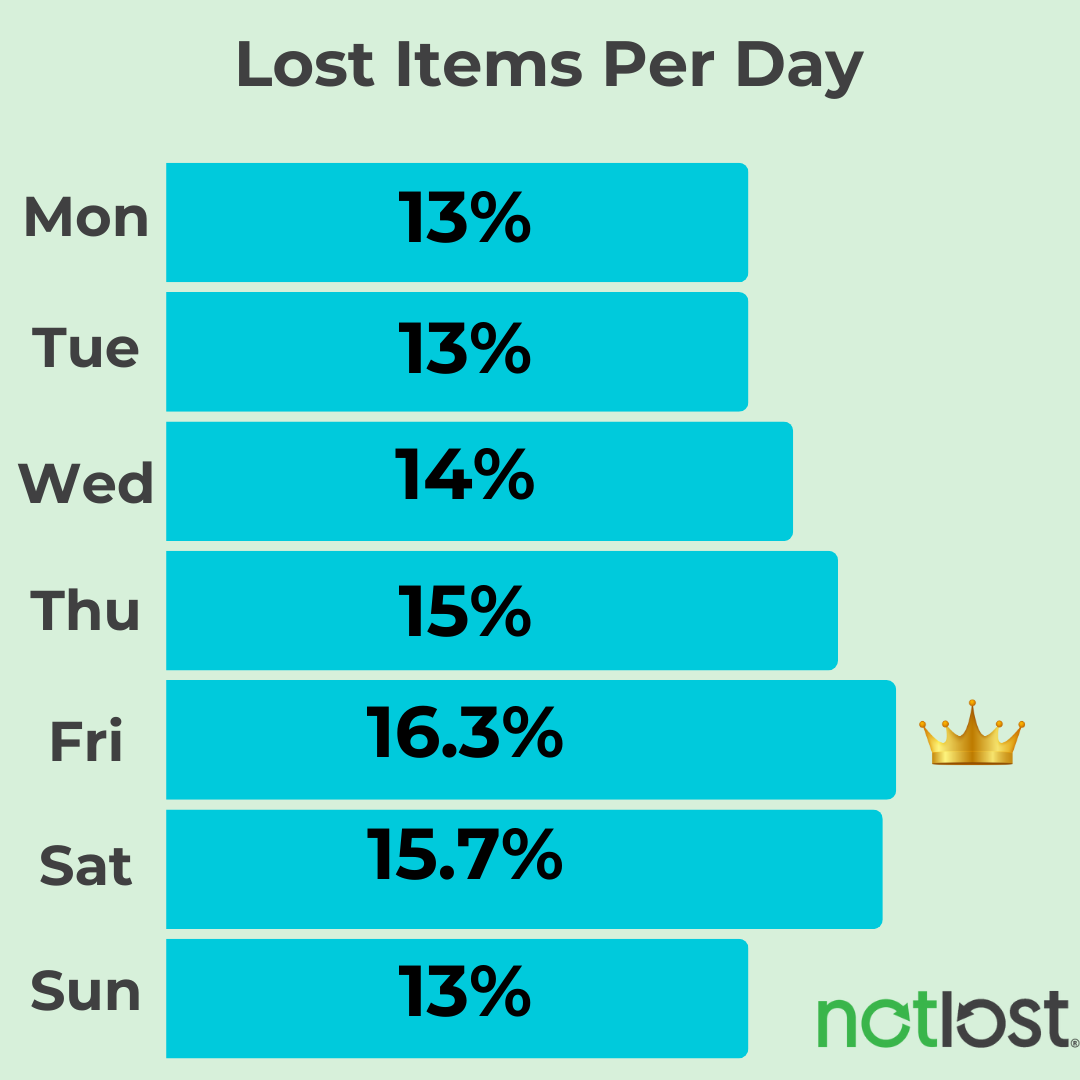
On the face of it, December doesn’t see too many misplaced posessions, sitting firmly mid-table for items lost each month. However, the data is slightly skewed because people don’t lose much from Christmas to New Year, with the last seven days of December featuring, on average, 60% fewer lost items compared to the rest of December.
Similarly, the 24 days leading up to Christmas present a 12.5% higher chance of losing possessions than the daily average across all months.
Our complicated relationship with alcohol and endless social occasions most likely plays a role here. With a few honourable exceptions, most drinkers do so to excess over the Christmas period, leaving their senses perpetually running at suboptimal levels.
Ok, so we’ve got some answers, but why the first Friday of December specifically?
%
Your increased chances of losing something on NotLost Day
Black Friday
Traditionally the busiest shopping period, Black Friday (one week before NotLost day) is likely another factor, as bargain-hungry Brits battle omnipresent offers in search of genuine deals.
While much of this is gifts for Christmas, it’s easy to grab a plush jumper or new headphones when shopping for Mum and Dad. 55% of Brits planned to buy clothing and accessories over the Black Friday weekend, and these items solidly rank in the top ten most misplaced possessions.
It’s an unfortunate state of affairs. You spend all your hard-earned cash on Black Friday and lose it the following Friday on NotLost day. Well, at least you’ve been warned.
What items get lost the most
NotLost has been digging through the last 12 months to bring you a definitive league table of what gets lost the most. We’ve adapted this based on our primary research, which indicates that 65 million items are displaced per annum, providing a solid foundation for us to estimate how many of each item is lost in the UK every year.
Item Category |
Lost Per Year |
| Bags | 11,726,000 |
| Phones | 10,402,000 |
| Wallet / Purse | 8,421,000 |
| Headphones | 3,710,000 |
| Keys | 2,905,000 |
| Glasses | 2,022,000 |
| Coats & Jackets | 1,878,000 |
| Hats | 1,539,000 |
| Jewelry | 1,440,000 |
| Other Clothing | 1,409,000 |
As you can see, backpacks took the prize by some measure, leading mobile phones by over 1.2m lost items per year, which surprised us. While losing a bag isn’t unheard of, personal experience (and ironically, this writer is prone to losing things) taught us that pocket-dwelling possessions seemed most easily misplaced.
For example, when we estimated the winners, each category from the remaining top five (mobile devices, wallets, headphones, and keys) had been placed above rucksacks. How wrong we were.
You will notice that all the items on this list are valuable. Some financially so, including mobile devices, jewellery, and headphones. Misplacing others is just seriously inconvenient, such as keys because you don’t want to sleep under a bush, or glasses because it’s hard to find anything without your specs.
What gets lost when
Alongside what goes missing and how often, it’s important to know which months are out to claim which items. It’s all well and good knowing you should hold onto your hat, but it’s even better knowing when to tighten your grip.
So, we looked at our top ten (cause, frankly, who cares about the rest) and identified the dangerous months so you can keep your wits about you.
Item Category |
Month Most Likely to Lose |
| Bags | November |
| Phones | August |
| Wallet / Purse | November |
| Headphones | October |
| Keys | July |
| Glasses | July |
| Coats & Jackets | October |
| Hats | November |
| Jewelry | October |
| Other Clothing | November |
If we’re trying to find a winner (and why wouldn’t we), November took the prize with the highest total number of items lost out of the top ten and the most categories. Well done, November.
When putting this together, we noticed December was conspicuously missing from claiming a single slot. Although it did come in a close second for both ‘hats’ and ‘other clothing’, the final month of the year seems to save itself for NotLost Day and not much else. A disappointing performance if we’re being brutally honest.
Aside from that, no real surprises.
Why do we lose things?
For some, it’s an age-old question (and a constant frustration). You have a pocket; in goes your phone – next thing it’s gone. Que the ranting and raving.
Well, we’re not here to let you off the hook completely, but it’s not entirely your fault. The thing is, our brains are, to put it lightly, overloaded in the modern age, facing a barrage of stimuli unheard of even 30 years ago.
So there’s less juice to go around but more things to remember, with items like mobile devices, headphones, and laptops relatively recent additions to our daily lives.
We’re also on the move a lot more, be it getting the bus to work, gobbling up £30 Ryanair flights or hopping in an Uber because it’s too damn cold outside. As you know, the stress and confusion of travelling is a fantastic opportunity to leave your bag behind.
The world has changed, and our minds haven’t had time to catch up.
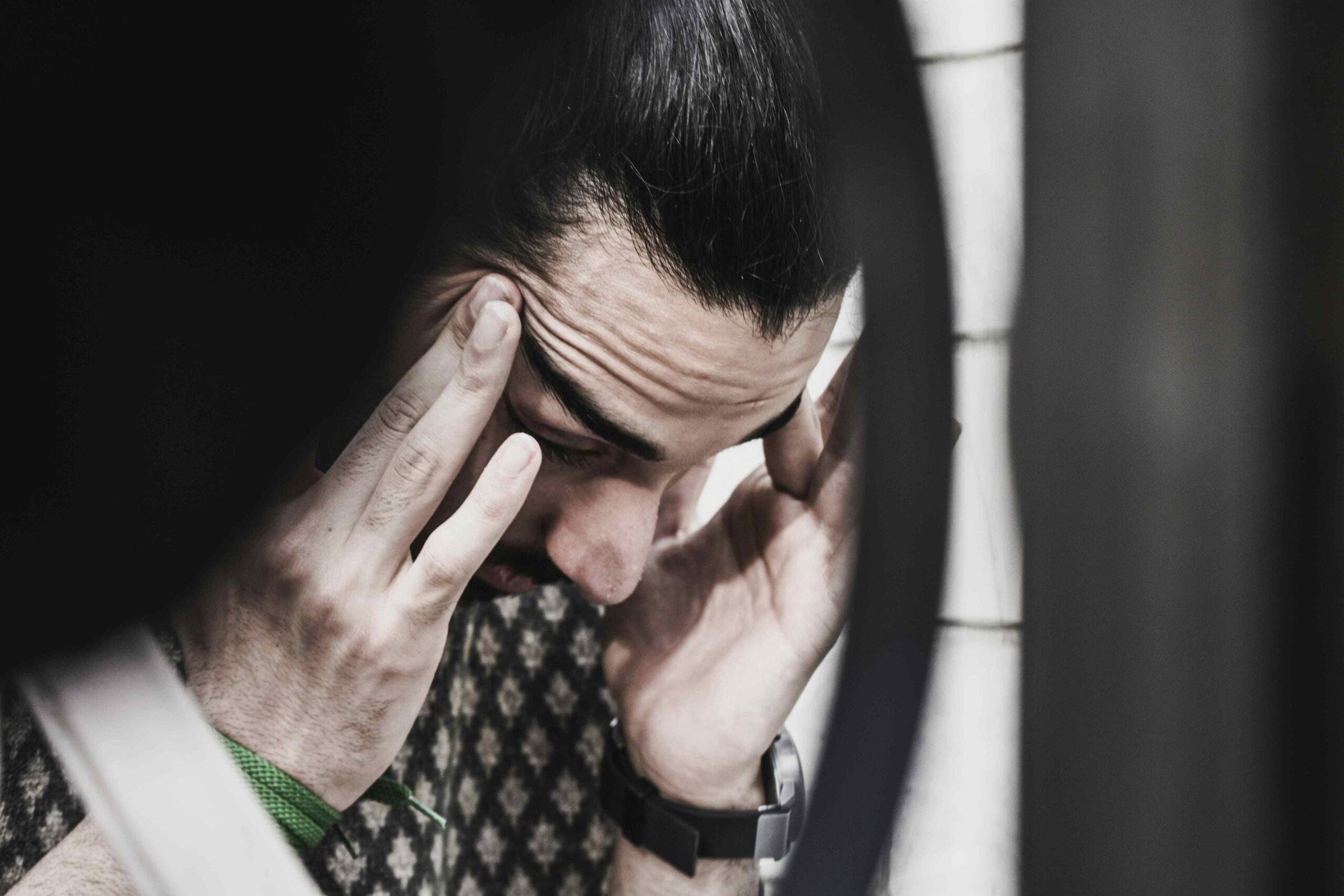
How do you stop yourself from losing things?
There are a few methods, and you’ll be glad to know they’re easy to enact.
Be nice to yourself
Not only is this good for your general mental health (and those around you), but it helps you keep hold of your stuff, as, surprise surprise, giving yourself a hard time impares mental capacity. In an interview with Vice, Susan Krauss Whitbourne, a psychology professor at the University of Massachusetts put it nicely:
“There’s all these negative associations with having a poor memory that just compound the situation,”
“It becomes a very self-perpetuating cycle, where you’re now so mad at having forgotten that you’re exploding with anger, and that’s going to impair your memory even more.”
So give yourself a break.
Have a place for everything
When you leave the house, do you randomly jam items into pockets and think, “That seems like a good system”? Upon returning, are your keys hurled into some corner with a vague notion of finding them a home later? Not good enough
A home for each item is crucial, both on the road and at base camp. Your front left pocket may have your phone, your front left your keys, and your back pocket your wallet. For those among us whose clothing contains no usable pockets (or, even worse, fake ones), we feel your pain and can only recommend adopting a bag with multiple pockets and using these instead.
But while keeping everything in a bag is logical in theory, they’re commonly lost, so think twice before putting your faith in them if you’re prone to backpack mishaps.
Remove clutter
Ok, so having a home for everything is great, but if your room is covered in detritus, it’s hard to know if something is missing. Try and keep rooms tidy wherever they may house your belongings.
It’s also just a great habit to keep, which will improve your sanity while giving you the best fighting chance of keeping the stuff you need in the place you need it.
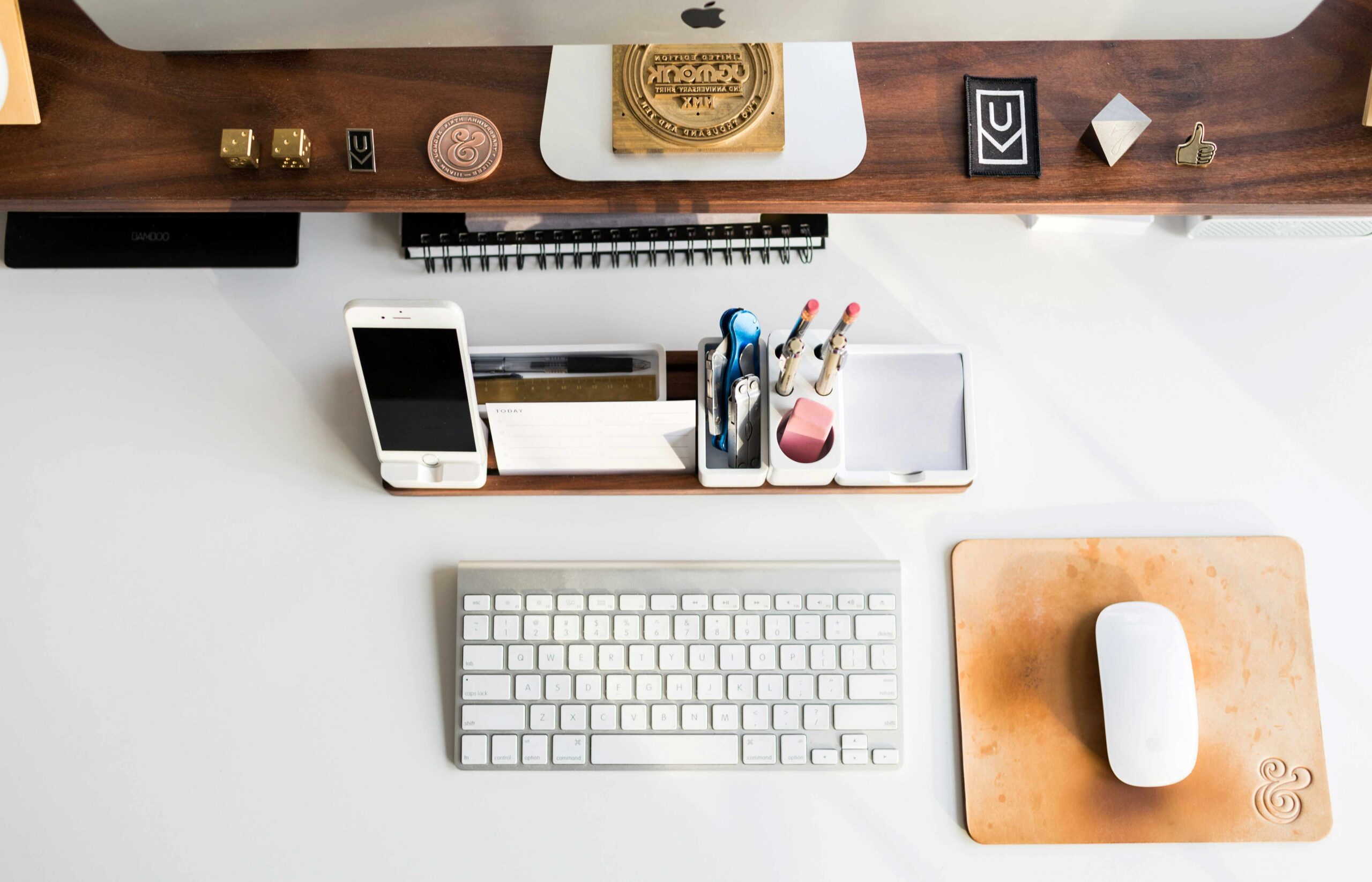
How to get things back (once you’ve already lost them)
In addition to preventing yourself from losing possessions, you can take some easy steps to increase your chances of getting them back once gone.
Buy a Bluetooth tracker
Countless companies sell Bluetooth trackers which allow you to pinpoint its location via an app. They come in different sizes, with certain ones suitable for different possessions and situations.
For example, if you’re losing things at home, you will need a tracker which is sensitive to a metre or so. If you’re more concerned about misplacing while out and about and just need to know roughly where it is, you could opt for a cheaper model with lower sensitivity. You can find three leading Bluetooth trackers below:
Add personal details
On anything remotely important, try and affix personal, identifiable details. We’re not talking about sensitive information, obviously, but writing your name on your rucksack, having a business card with contact details in a wallet or scribbling your address on the label of your favourite scarf will all make a big difference.
Report it missing
Ok, you tried everything. You had a place for each item, attended meditation lessons, tidied your room and even got a Bluetooth tracker. No joy, your phone/wallet/keys/hat has still evaporated into thin air. All is not lost.
No matter where you lost it, there’s a chance it was handed in and can be returned to you. Retrace your steps, figure out where it could have been left, and get in touch with the relevant organisation. If you decided to add some identifiable details per our previous tip, returning it will be much easier.
If you’re lucky, you lost it somewhere using NotLost’s market-leading software, and you’ll have it back in no time.
